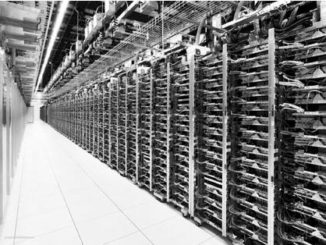
Solving HPC Conflicts with Containers
It’s an unavoidable truth of information technology that the operators and users are sometimes at odds with each other. …

It’s an unavoidable truth of information technology that the operators and users are sometimes at odds with each other. …

Kubernetes, the software container management system born out of Google, has seen its popularity in the datacenter soar in recent years as datacenter admins look to gain greater control of highly distributed computing environments and to take advantage of the advantages that virtualization, containers, and other technologies offer. …

It happens time and time again with any new technology. Coders create this new thing, it gets deployed as an experiment and, if it is an open source project, shared with the world. …

Containers continue to gain momentum as organizations look for greater efficiencies and lower costs to run distributed applications in their increasingly virtualized datacenters as well as for improving their application development environments. …

There are individuals and companies that create whole new technologies for their own consumption and that sometimes open source them for others to help steer their development and fix their bugs. …

High performance computing (HPC) is traditionally considered the domain of large, purpose built machines running some *nix operating system (predominantly Linux in recent years). …

The ultimate success of any platform depends on the seamless integration of diverse components into a synergistic whole – well, as much as is possible in the real world – while at the same time being flexible enough to allow for components to be swapped out and replaced by others to suit personal preferences. …

At some point, all of the big public cloud providers will have to eat their own dog food, as the parlance goes, and run their applications atop the cloudy version of their infrastructure that they sell to other people, not distinct and sometimes legacy systems that predate the ascent of their clouds. …

It has been six years now since the “Austin” release of the OpenStack cloud controller was released by the partnership of Rackspace Hosting, which contributed its Swift object storage, and NASA, which contributed its Nova compute controller. …

Let’s be honest. Although the old saying “slow and steady wins the race” may be a lesson that helps us get through school, it isn’t a realistic credo for the unrelenting demands of today’s fast-paced businesses. …
All Content Copyright The Next Platform